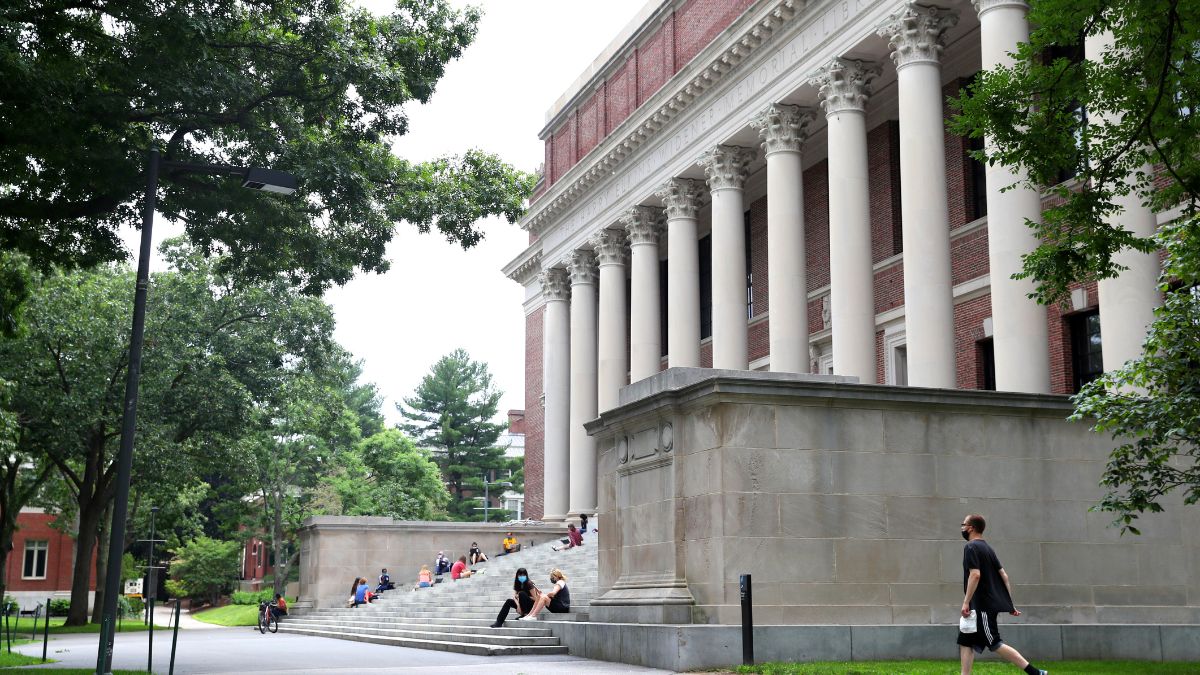Unprecedented overreach : Harvard leads university revolt against Trump s funding threats
 Get the Full StoryThe Trump administration s increasing efforts to pressure American universities has sparked a major backlash. Schools nationwide, led by Harvard University, are resisting what they call unfair government control and political meddling. As reported by The Guardian, the situation became much more serious when Harvard University sued the administration. Harvard argued that its threats to cut billions of dollars in funding and force major policy changes were illegal. This move quickly led to a strong show of unity, as more than 150 university presidents from different types of schools, including Ivy League universities, big public universities, and small liberal arts colleges, signed a letter together criticizing the administration s actions. The administration s campaign focused on many well-known universities, such as Harvard, Columbia, Princeton, Cornell, Northwestern, Brown, and the University of Pennsylvania. The administration claimed its goal was to fight supposed antisemitism on campuses and remove what it called excessive diversity and inclusion programs. Colleges are fighting back against threats from US government The US government froze or threatened to freeze billions in federal funding unless universities agreed to a list of demands. These demands included changing admissions policies, punishing student protesters, reviewing student and faculty opinions, and putting certain academic departments under outside control. In some cases, the administration even warned it might take away universities tax-exempt status, per CBS News. Columbia University at first agreed to some of the administration s demands, including putting an academic department under outside supervision and increasing security. This decision was heavily criticized by others in higher education, leading to Columbia s interim president stepping down. Photo by Scott Eisen Getty Images Harvard, on the other hand, firmly refused to follow the administration s orders, which resulted in the lawsuit. The lawsuit claimed that the administration s actions broke the university s constitutional rights and represented illegal government interference in academic matters. The joint letter signed by over 150 university presidents showed an unusual level of unity against the administration s moves. The letter said they were open to reasonable reforms and proper government oversight but strongly opposed what they saw as an unnecessary intrusion into the lives of students, faculty, and staff. The university leaders worried that the administration s actions were harming the basic ideals of academic freedom and open discussion, which are crucial for higher education. The administration s efforts went beyond financial threats and also affected international students. Hundreds of student visas were canceled, and immigration officials arrested foreign students, many of whom had participated in pro-Palestinian protests. These steps raised further concerns about discouraging free speech and open debate on campuses. The joint letter directly addressed this issue, stressing the need for environments where students and faculty can share ideas without fear of punishment, censorship, or deportation.
Get the Full StoryThe Trump administration s increasing efforts to pressure American universities has sparked a major backlash. Schools nationwide, led by Harvard University, are resisting what they call unfair government control and political meddling. As reported by The Guardian, the situation became much more serious when Harvard University sued the administration. Harvard argued that its threats to cut billions of dollars in funding and force major policy changes were illegal. This move quickly led to a strong show of unity, as more than 150 university presidents from different types of schools, including Ivy League universities, big public universities, and small liberal arts colleges, signed a letter together criticizing the administration s actions. The administration s campaign focused on many well-known universities, such as Harvard, Columbia, Princeton, Cornell, Northwestern, Brown, and the University of Pennsylvania. The administration claimed its goal was to fight supposed antisemitism on campuses and remove what it called excessive diversity and inclusion programs. Colleges are fighting back against threats from US government The US government froze or threatened to freeze billions in federal funding unless universities agreed to a list of demands. These demands included changing admissions policies, punishing student protesters, reviewing student and faculty opinions, and putting certain academic departments under outside control. In some cases, the administration even warned it might take away universities tax-exempt status, per CBS News. Columbia University at first agreed to some of the administration s demands, including putting an academic department under outside supervision and increasing security. This decision was heavily criticized by others in higher education, leading to Columbia s interim president stepping down. Photo by Scott Eisen Getty Images Harvard, on the other hand, firmly refused to follow the administration s orders, which resulted in the lawsuit. The lawsuit claimed that the administration s actions broke the university s constitutional rights and represented illegal government interference in academic matters. The joint letter signed by over 150 university presidents showed an unusual level of unity against the administration s moves. The letter said they were open to reasonable reforms and proper government oversight but strongly opposed what they saw as an unnecessary intrusion into the lives of students, faculty, and staff. The university leaders worried that the administration s actions were harming the basic ideals of academic freedom and open discussion, which are crucial for higher education. The administration s efforts went beyond financial threats and also affected international students. Hundreds of student visas were canceled, and immigration officials arrested foreign students, many of whom had participated in pro-Palestinian protests. These steps raised further concerns about discouraging free speech and open debate on campuses. The joint letter directly addressed this issue, stressing the need for environments where students and faculty can share ideas without fear of punishment, censorship, or deportation.Share: